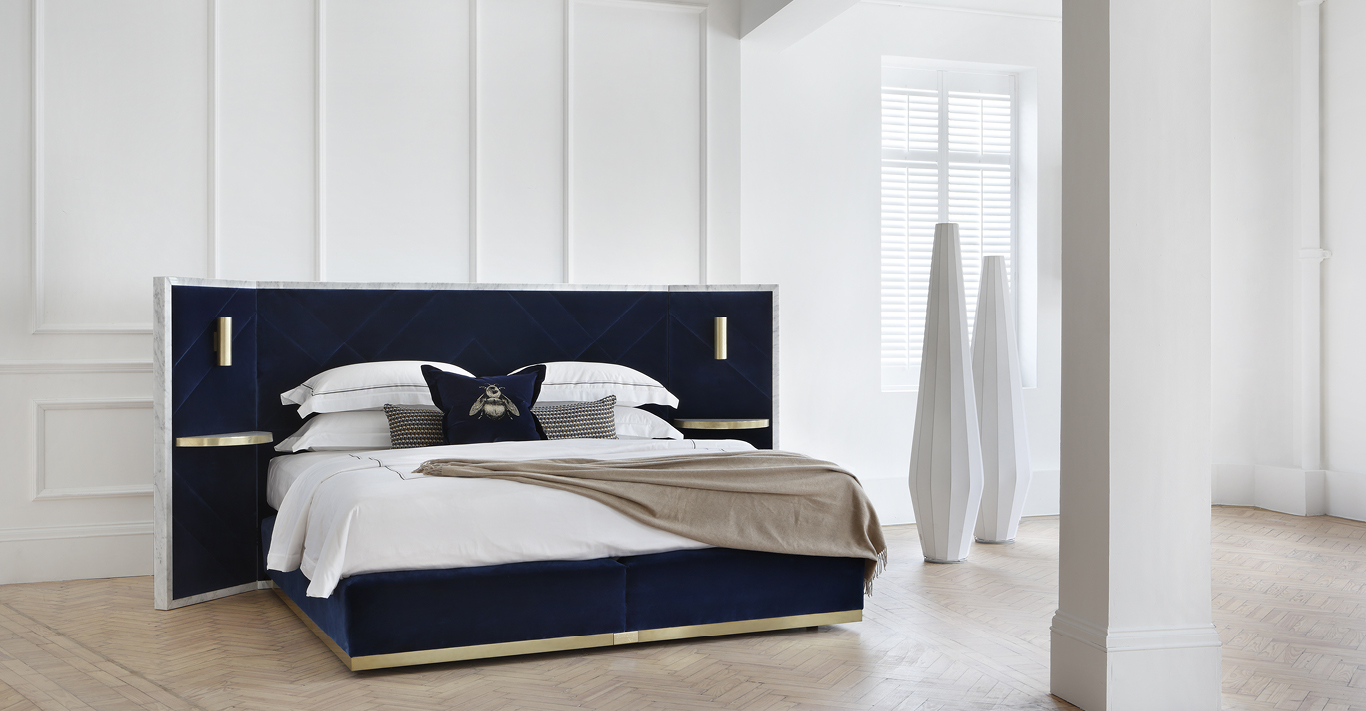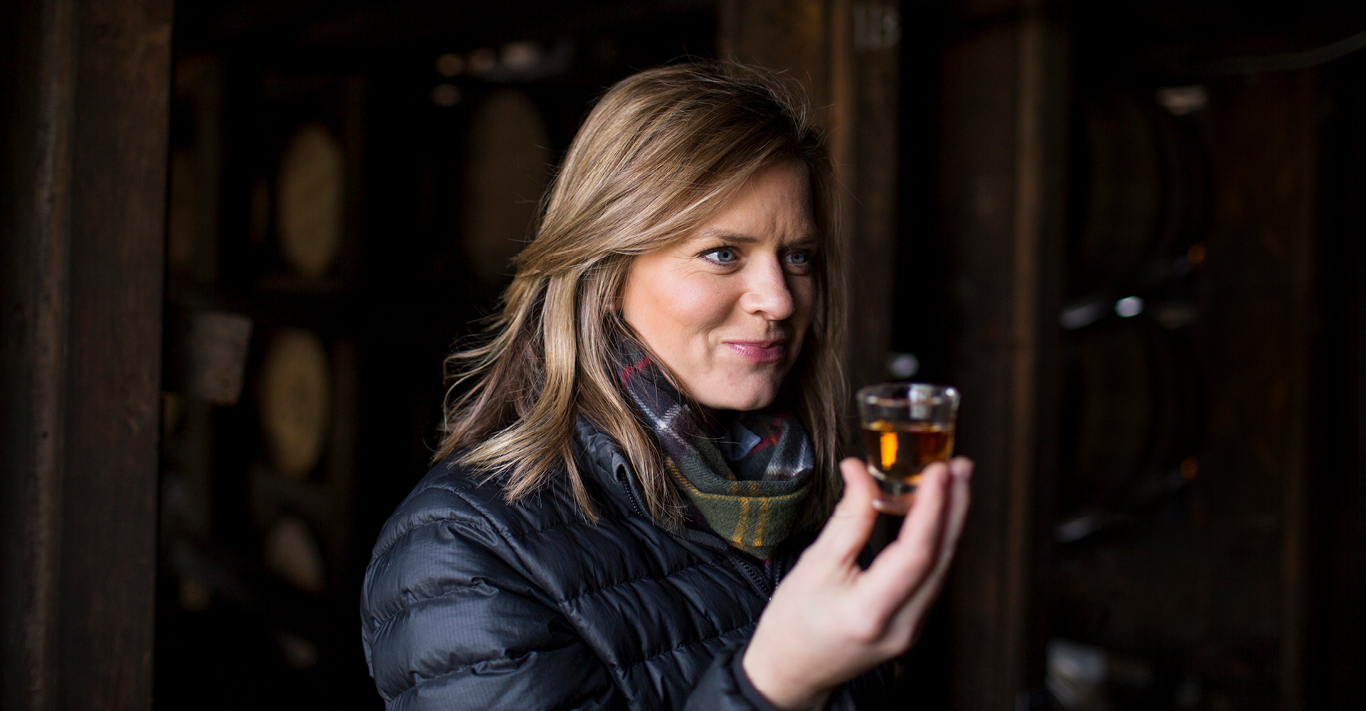WORDS
Gemma Billington
Sleep. It’s something humans have done since the dawn of time and the day we were born, yet something that often eludes us.
In Britain, sleeplessness is one of the most common complaints heard by GPs, with around 16 million UK adults suffering from sleepless nights and 67% of the population saying they suffer from disrupted sleep, according to research by Aviva.
Despite the fact that we all know the benefits of a good night’s sleep, for many of us, being a “bad sleeper” is simply something we put up with. The aforementioned report also suggested, somewhat counterintuitively, that around half of those UK adults surveyed (51%) don’t take any measures to improve their sleep.
Dr Rebecca Robbins, an Instructor in Medicine at Harvard Medical School and renowned sleep scientist, is on a mission to change our bedroom habits for good. This year the American sleep guru has teamed up with luxury British bed maker Savoir to produce a comprehensive set of guidelines and fascinating new research, dubbed the Savoir Sleep Script, to help get bad sleepers back on track.
‘In the Sleep Script we talk about the link between sleep and our physical appearance, our internal bodily health, our cognitive health and immune system,’ explains Dr Robbins about the new report. ‘We touch on all of these really big and important areas and do our best to summarise it for the general population and to make it actionable. So there’s lots of tips and strategies that acknowledge all of these known benefits [of good sleep]. There are also known risks of insufficient or poor quality sleep. And so, in the face of all of that, how do we make sleep a focus, because the truth is, we as a global society are not getting enough sleep.’
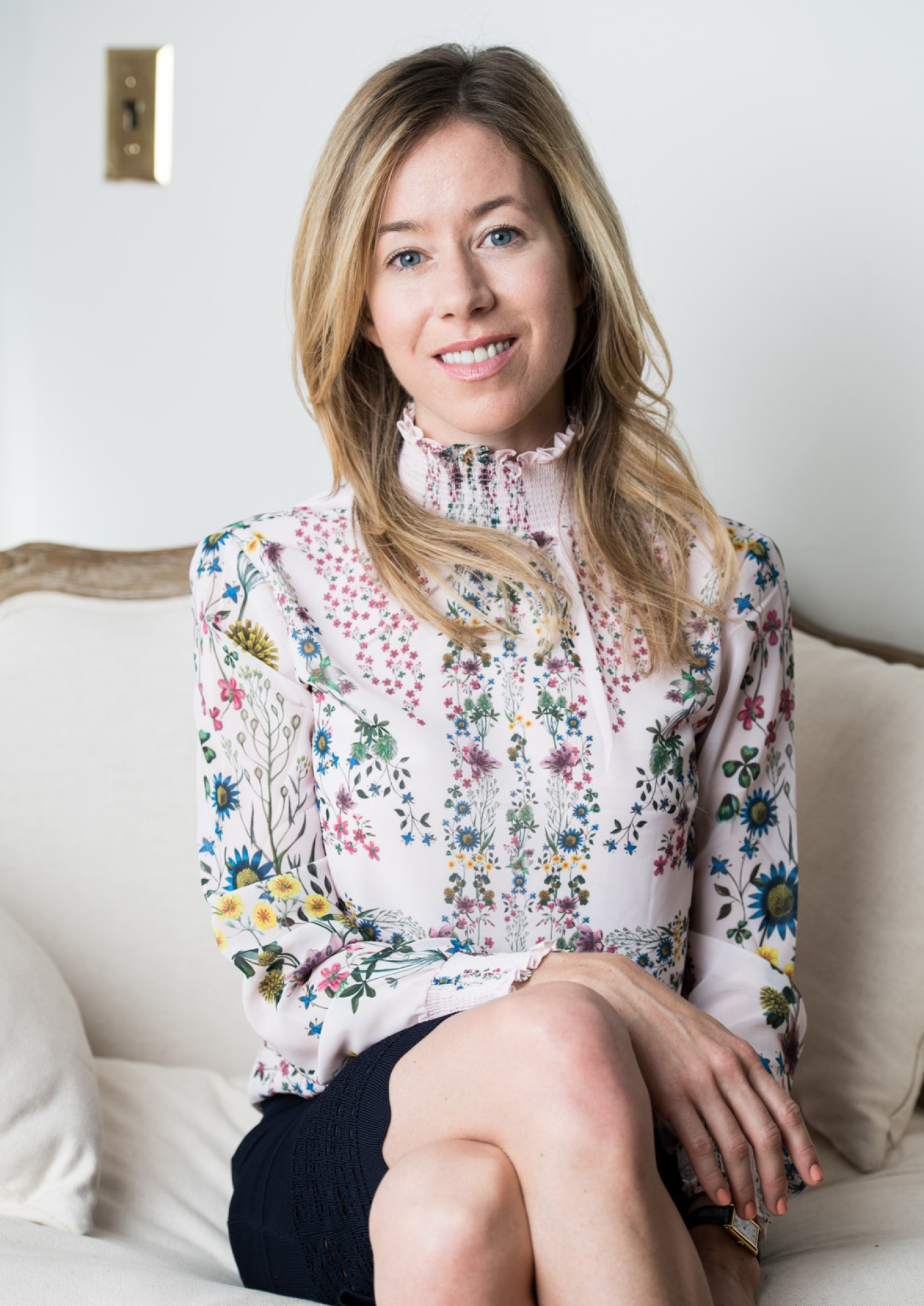
New rules
In the Sleep Script, Dr Robbins refers to sleep as a ‘long-term investment’ that benefits both mind and body and, like a new exercise regime, is something that takes practice and dedication. The report encourages new attitudes to sleep and eschews established ideas and practices associated with sleep, such as not ‘counting sheep’ and embracing a child-like sleep routine.
Waking up in the middle of the night and struggling to fall back to sleep is a frustration we can all relate to. But lying awake and waiting for sleep to come is, according to Dr Robbins, ‘one of the worst things that we can do if we’re struggling to sleep’. Instead, she advises getting up for around 15 minutes and doing gentle activities or tasks under low light, such as light yoga or folding laundry. According to recent studies, if you are struggling to get back to sleep, getting up and out of bed can help you fall asleep sooner. ‘We want to keep the bed as the place where sleep happens,’ Dr Robbins adds.
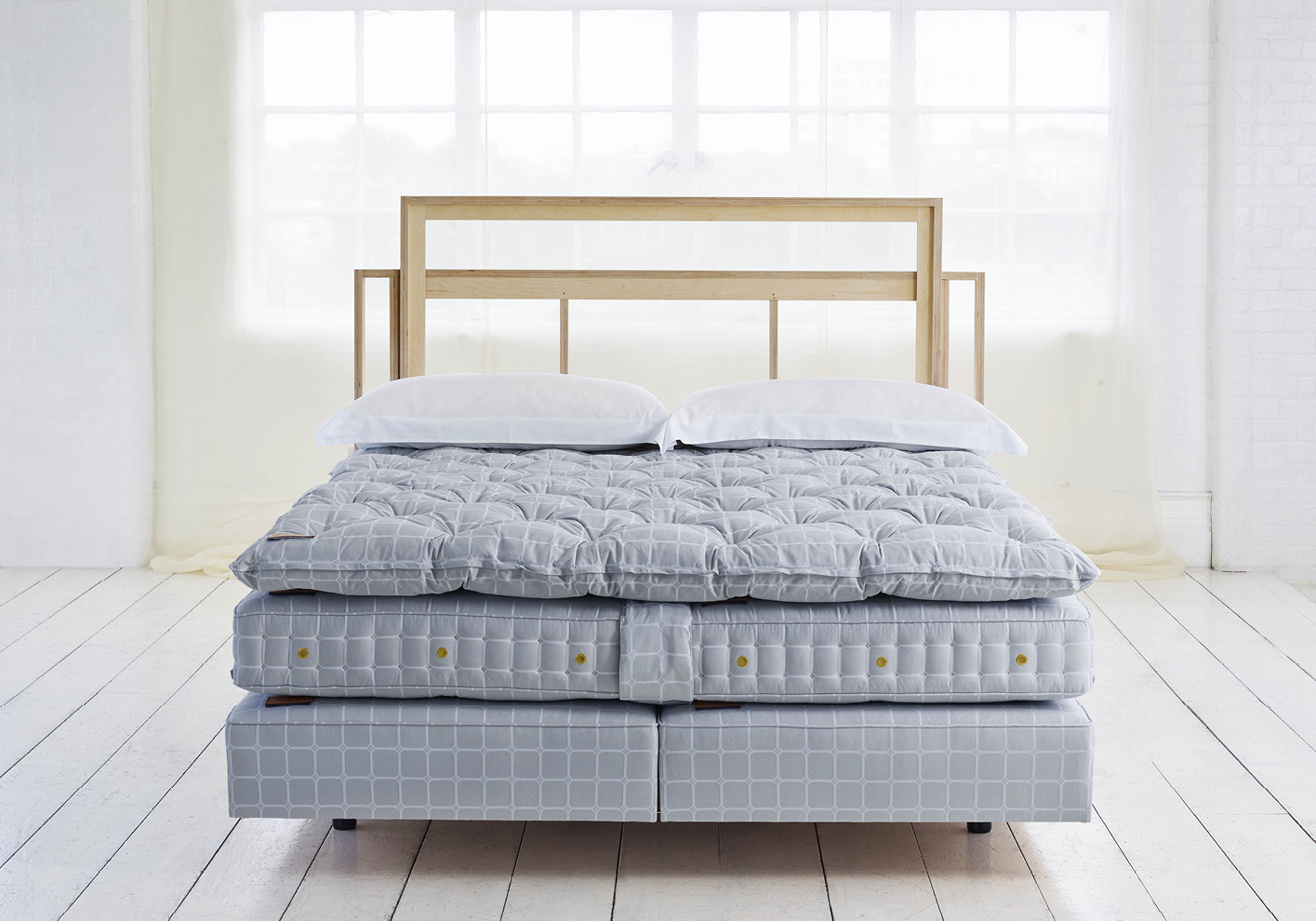
Routine is key
Parents of young children know the importance of routine when it comes to sleep. Yet once we progress to adolescence and adulthood, such regimented bedtime routines are largely cast aside.
According to the Sleep Script, routine is an essential part of getting better quality sleep and can lead to improved productivity and health.
‘Falling asleep at the same time and waking at the same time is everything,’ says Dr Robbins. This is because we need to work with – rather than against – our circadian rhythm, the body’s internal 24 hour clock.
‘Our alertness over the course of the day is not linear,’ she adds, ‘we can’t just switch our brains off like a light; it takes time. Also giving ourselves cues like the timing of our nutrition or when we go outside all feed into that circadian rhythm that allows us to be optimally tired around our bedtime and wake up at our desired rising time.’
As well as having a morning alarm set for the same time every day, Dr Robbins also suggests introducing a ‘sleep alarm’ to start the wind-down process in earnest. The first rule is to put away your mobile phone (‘they emit a blue light that actually signals your brain that you’re supposed to be alert’) and focus on getting cosy to put your mind and body in sleep mode. This could be through curling up with a book, doing gentle yoga or meditation, or having a hot bath with some scented candles.
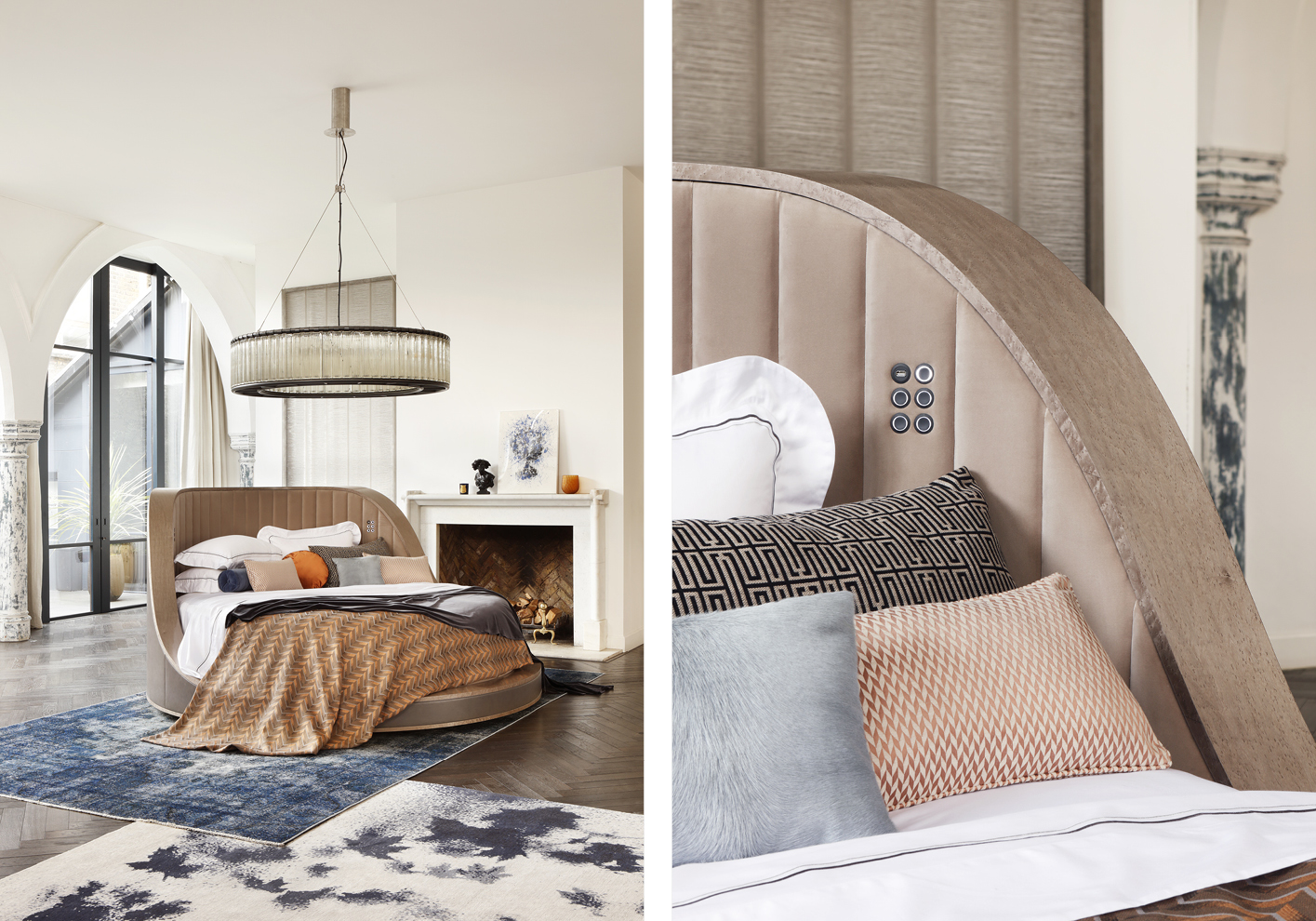
Bedroom habits
Once you’re suitably relaxed, it’s time to retreat to the bedroom which, Dr Robbins agrees, is a ‘great place to start’ when it comes to implementing a better sleep strategy. The room itself should be as dark and quiet as possible (‘use earplugs or invest in a noise machine if your bedroom is noisy’) and should also be kept nice and cool, around 19 degrees centigrade. This is because our body temperature rises during sleep. Dr Robbins insists that, when it comes to change, ‘a little goes a long way’, but the foundation of a sleep-ready bedroom is, naturally, the bed.
This is where Dr Robbins’ partnership with Savoir really comes into play. Savoir Beds dates back to 1905, when it started life as The Savoy hotel’s in-house bespoke bedmaker. The brand was purchased by businessman Alistair Hughes in 1997, who later relaunched it as Savoir Beds but maintained its DNA to create the world’s most luxurious beds, tailor-made to the sleeper. Using natural materials over synthetic ones and crafting each one by hand means that Savoir Beds are made with the same calibre and attention to detail as a Savile Row suit. The company (which has workshops in Wales and north London) produces fewer than 1,000 beds per year, focussing on quality over quantity. The density of each mattress is similarly tailor-made to the owner, but each one is designed to keep the spine in proper alignment and relieve pressure points. The premium natural materials help regulate the body’s temperature by wicking away moisture, which helps you sleep longer, according to a study from the Nature And Science of Sleep journal.
‘We’re all very individual when it comes to our bed preferences,’ says Dr Robbins, eschewing the idea of a “perfect” sleep posture, ‘but an unsupportive mattress will limit the quality of your sleep, so finding the right surface for you is absolutely critical.’
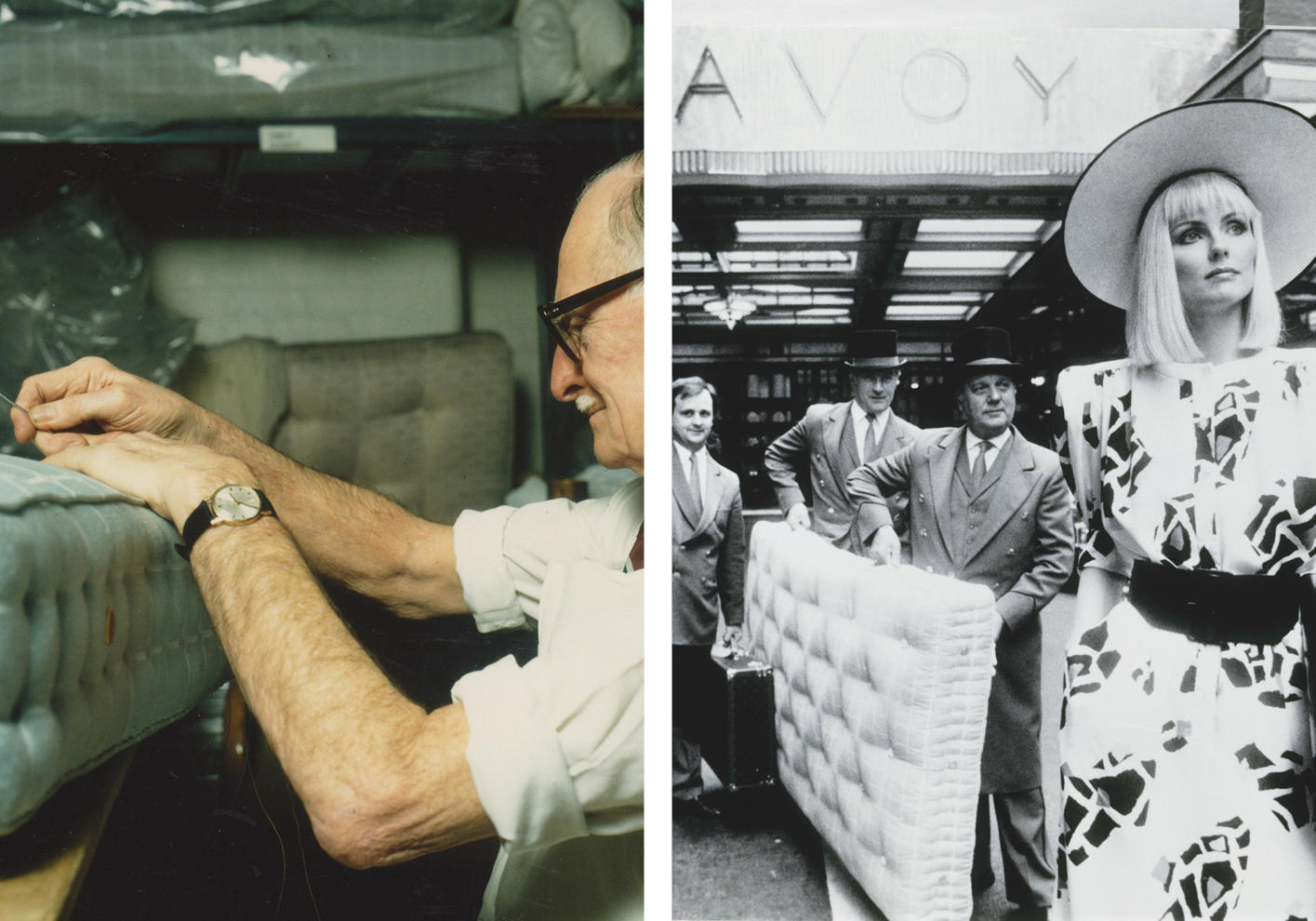
Mental health and the role of quality sleep
Once we retreat to the bedroom, Dr Robbins advises doing so armed with feelings of gratitude and positivity to put our minds at ease. This may sound a little new-age (and very un-British), but if the events of the past 18 months have taught us anything, it’s that prioritising our mental wellbeing is absolutely essential. Studies into the long-term effects of the pandemic on our mental health are still in their infancy, but there’s no denying that the implications of lockdowns, job insecurities and general anxieties have created mass psychological distress.
Unsurprisingly, heightened states of anxiety have major implications on our sleep, with Dr Robbins describing the pandemic as a ‘perfect storm’; tipping individuals at potential risk for sleep disorders over the edge.
‘If you’re waking up after a poor night of sleep, you’re more likely to experience negativity, poor mood and mental health symptoms such as feelings of anxiety and depression,’ she explains. ‘And when you wake up and you’re experiencing negative effects, you might be unable to do what we call “perspective taking”.’
This refers to our brain’s ability to process ‘scary or unfortunate events’, which if negatively impacted can snowball into serious issues, not only when it comes to processing information and emotions on a day-to-day basis, but in the long-term.
‘If we can make sleep a priority, we’re much more likely to better manage our mood and engage in that critical perspective.’
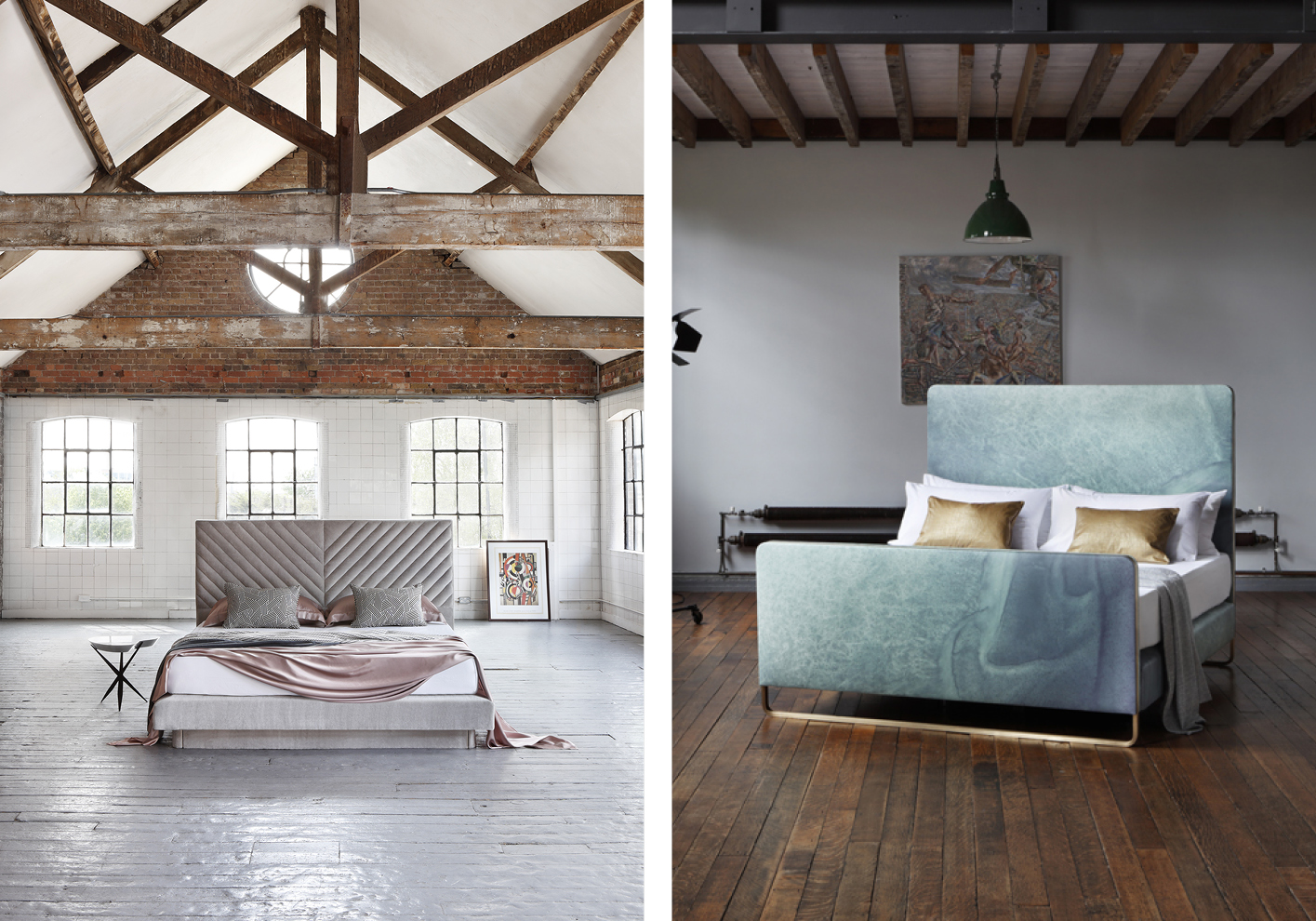
Return of the nap
Offices may be gradually reopening following months of enforced remote working, but employees have embraced the new “balance”, with 71 per cent of UK workers wanting flexible work options according to research by Microsoft. It may seem counterproductive, but implementing sleep management into the office alongside new office guidelines should be a top priority, according to the Sleep Script.
In her research, Dr Robbins has found that fewer than 10% of businesses have any sort of sleep education or resources for their employees. This is hardly surprising, but as we endeavour to prioritise our mental wellbeing and work-life balance, sleeping on the job is no longer a sackable offence.
‘Finding a way to allow workers to get rest and recover from feeling sleepy is vitally important,’ says Dr Robbins. ‘We all have a slight dip in our alertness in the afternoon and it’s always so interesting to me that we all reach for coffee and fight against our circadian rhythm, when one of the best things we could do is actually take a little nap.’
She advises snoozing for a maximum of 20 minutes (even 10 minutes is sufficient), and that if you find yourself exhausted every afternoon it may be time to reevaluate your entire sleep schedule. But in the new hybrid work structure, Dr Robbins hopes that businesses will introduce and prioritise sleep management; whether that’s implementing better lighting and ventilation or creating relaxing breakout spaces and sleep pods.
‘I think lots of leaders in businesses are now realising that afternoon performance is better after a short nap,’ she says. ‘It’s compelling to think that the future of the workplace might be more open to that.’
For further details on Savoir and their new Sleep Script please visit savoirbeds.com or call the Mayfair showroom on 020 7493 4444. With thanks to Hotel 41; 41hotel.com

